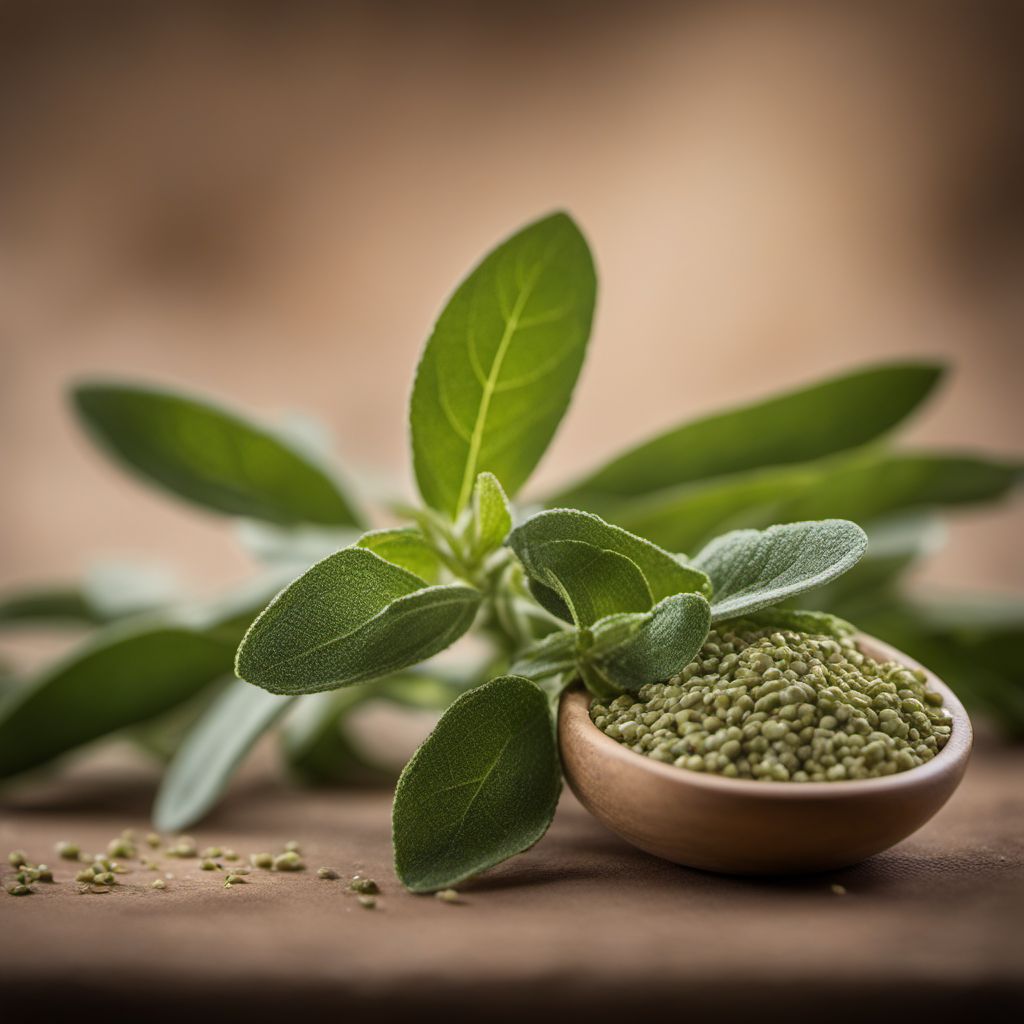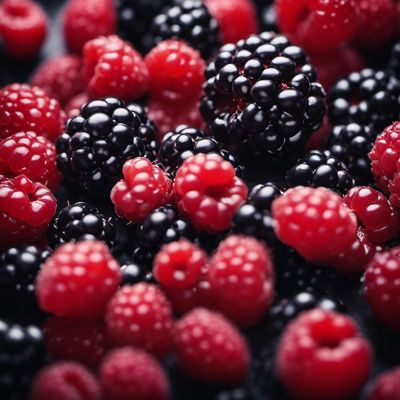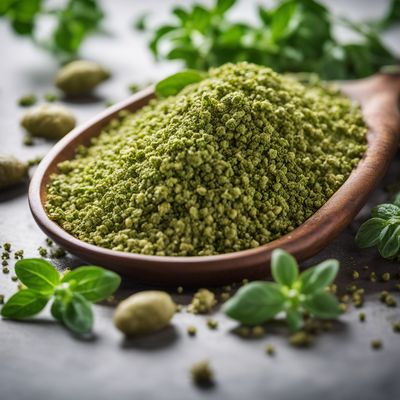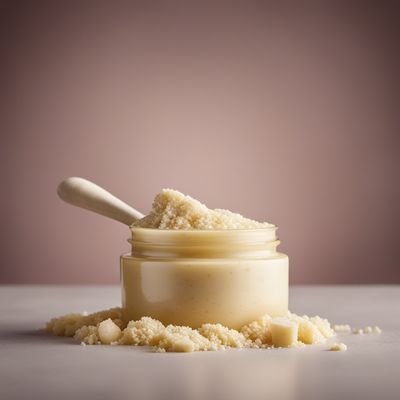
Ingredient
Sage flavour
The Savory Herb: Unleashing the Essence of Sage Flavour
Sage flavour is a dried herb with grayish-green leaves and a strong, earthy aroma. It has a slightly fuzzy texture and can be crushed or ground to release its essential oils. Sage flavour offers a robust and slightly bitter taste with hints of eucalyptus and citrus. It is commonly used as a seasoning, stuffing, or infusion in various cuisines around the world.
Origins and history
Sage has a rich history dating back to ancient times. It was highly regarded by the ancient Greeks and Romans for its medicinal properties and was believed to promote longevity and wisdom. Sage leaves were also used in religious ceremonies and as a natural remedy for various ailments. Today, sage flavour is cultivated in different parts of the world, including the Mediterranean region, North America, and Asia.
Nutritional information
Sage flavour is low in calories and contains small amounts of essential nutrients such as vitamin K, vitamin A, and calcium. It is also known for its antioxidant and antimicrobial properties. A teaspoon of dried sage leaves provides approximately 3 calories and negligible amounts of fat, protein, and carbohydrates.
Allergens
None
How to select
When selecting sage flavour, look for leaves that are grayish-green in color and free from any signs of discoloration or mold. The leaves should be whole and intact, without any crumbling or crushing. Avoid purchasing sage flavour that has a dull or faded appearance, as this may indicate loss of flavor and aroma.
Storage recommendations
To maintain the freshness and flavor of sage flavour, store it in an airtight container in a cool, dark place away from direct sunlight. Avoid storing it near strong-smelling spices or ingredients, as it can absorb odors easily. Properly stored sage flavour can retain its flavor for up to a year.
How to produce
Sage flavour can be easily grown in a home garden or in pots. It thrives in well-drained soil and requires ample sunlight. Sage plants can be propagated from seeds or cuttings. Regular pruning will help promote bushier growth and prevent the plant from becoming woody. Sage is a hardy herb that can withstand various climates and is relatively low-maintenance.
Preparation tips
Sage flavour can be used in a variety of ways in the kitchen. It can be crushed or ground to make a flavorful seasoning or added to marinades, rubs, and sauces. Sage flavour is commonly used to flavor roasted meats, poultry, and stuffing. It pairs well with butter, garlic, lemon, and other herbs like thyme and rosemary. Additionally, sage flavour can be infused into oils or vinegars for added depth of flavor.
Substitutions
Thyme leaves, rosemary leaves
Culinary uses
Sage flavour is widely used in Mediterranean, Italian, and American cuisines. It is commonly found in dishes such as roasted chicken, pasta sauces, and Thanksgiving stuffing. Sage flavour is also used in savory baked goods like biscuits and cornbread. It adds a unique touch to creamy soups and stews. Additionally, sage flavour is a key ingredient in traditional British dishes like sage and onion stuffing and sage Derby cheese.
Availability
Sage flavour is cultivated in various regions around the world, including the Mediterranean, North America, and Asia. It is commonly available in grocery stores, supermarkets, and farmers markets.
More ingredients from this category » Browse all

Blackberry flavour
The Essence of Luscious Berries

Oregano flavour
The Herbaceous Allure of Oregano

Egg yolk flavour
Golden Essence: Unleashing the Richness of Egg Yolk

Sour cream cherry flavour
The Tangy Twist of Cherry Sour Cream

Gin flavour
The Essence of Gin

Whiskey flavour
"The Enchanting Essence of Whiskey Infusion"

Feijoa flavour
The Exotic Essence: Unveiling the Enchanting Feijoa Flavor

Pastry flavour
The Essence of Pastry: Unveiling the Flavorful World of Pastry Flavour

Horseradish flavour
The Fiery Zest

Nutella flavour
Decadent Hazelnut Chocolate Delight

Medium hot flavour
The Fiery Essence of Medium Heat

Red orange flavour
The Vibrant Citrus Burst: Red Orange Flavor